
Motherboards ATX vs Micro ATX vs Mini ITX [Which To Pick?]
After the obvious size difference between the 3 types of a motherboard, the next most noticeable distinction is the RAM capacity that each of the form factors can accommodate. Both ATX and Micro-ATX have 4 RAM slots Vs the Mini-ITX, which only has 2. In a nutshell, this means the Mini-ITX can only accommodate a maximum of 2 x 16gb ram sticks, a.
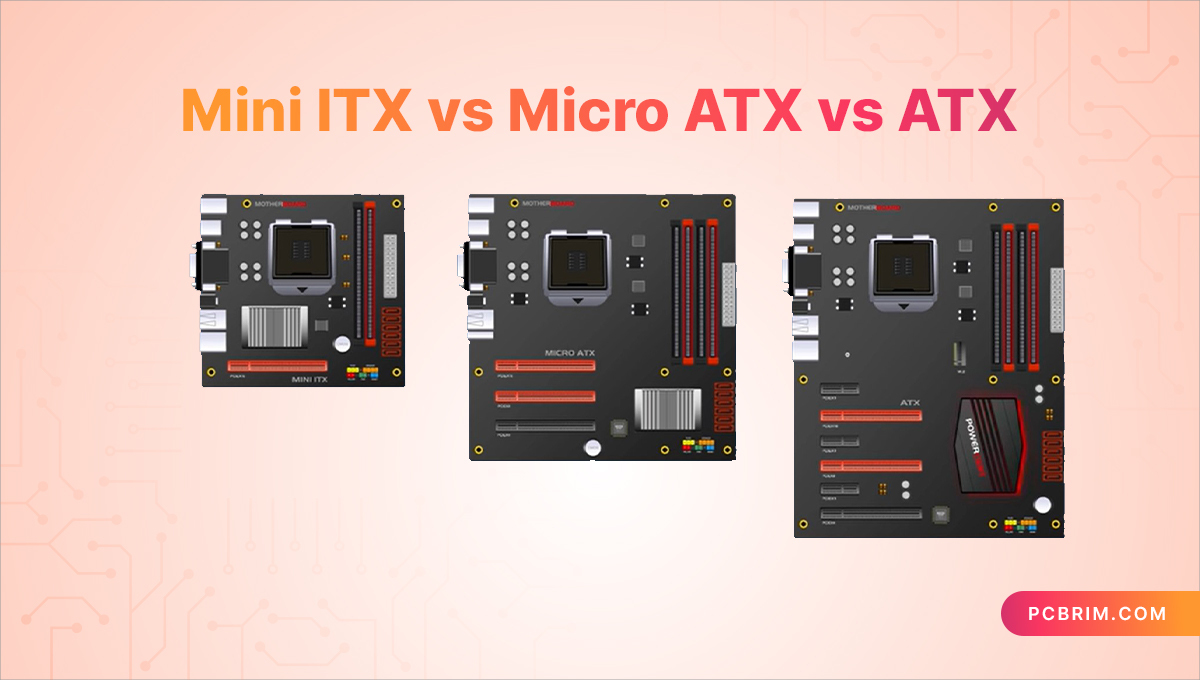
Mini ITX vs Micro ATX vs ATX A Detailed Comparison
ATX VS Micro ATX VS Mini ITX. So, let's head over to each motherboard form factor's different pros and cons in correlation with each other. First of all, if you are actively looking to build a high-end rig that would serve you for a couple of incoming years and you can afford pricey Motherboards, it would be best to buy an ATX motherboard.These motherboards' looks are also far superior.
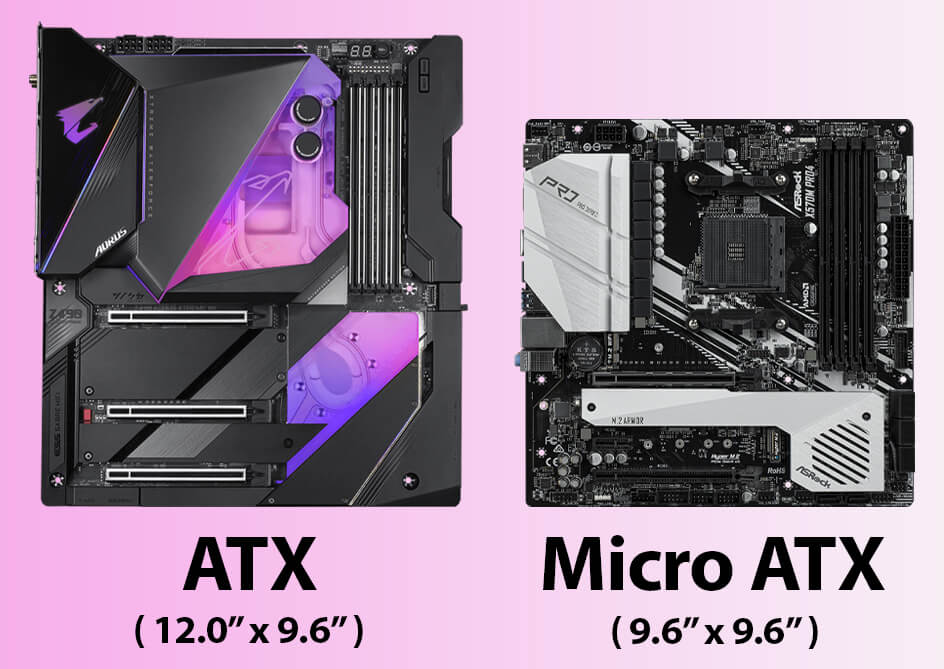
ATX vs Micro ATX vs Mini ITX Which Should I Choose?
ATX vs Micro ATX vs Mini ITX. Size. As you can see from the image above, ATX is the largest format of the bunch, measuring 305×244 mm. The Micro ATX is a tad shorter but just close behind, measuring 244×244 mm. Finally, there's the Mini ITX motherboard. It's the smallest of the bunch at a diminutive 170×170 mm.

ATX Vs Micro ATX Vs Mini ITX Best Guide 2023
Micro ATX vs Mini ITX vs ATX: Key Differences Explained Updated: September 10, 2023 by Ryan Clancy | Leave a comment Key Points Your PC's performance and functionality depend, in large part, upon whether your motherboard is the correct size.

Micro ATX vs Mini ITX Which Motherboard to Buy in 2021
Micro ATX is similar in size to a regular ATX motherboard, removing some vertical size, sitting at 9.6 inches by 9.6 inches. So while ATX is a rectangle, Micro ATX is square-shaped. You have many of the same commodities ATX has, including four RAM slots, but you have fewer PCI Express slots as a result of the reduced space.

Mini ITX vs. Micro ATX vs. ATX Motherboard Sizes Explained Voltcave
1. Gaming PC: For all those hardcore gamers out there, ATX is the best form factor. However, this is only useful if you want to make use of the extra PCI-e slots. Otherwise, Micro ATX offers almost the same features but at a lower price. So, it's a close competition between Micro ATX and ATX form factor. 2.

ATX vs MicroATX vs Mini ITX Motherboards(Latest Guide 2023)
The Flex ATX is a more compact version of the micro-ATX and has a maximum size of 9 inches x 7.5 inches (229 mm x 191 mm). Most of the cheapest H610 offerings are based on the Flex ATX form factor.
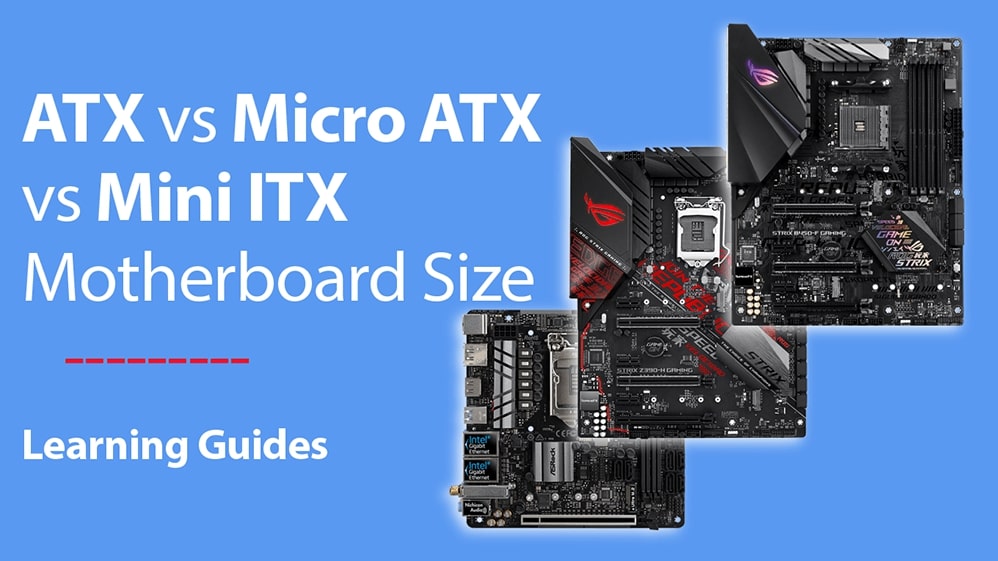
Micro ATX vs Mini ITX vs ATX Which Size is Right for You?
Micro-ATX strikes a balance between size and functionality, Mini-ITX maximizes space efficiency, and ATX offers the highest level of expandability and features. The right choice depends on your individual requirements, budget, and intended use. By understanding the differences and aligning them with your needs, you can select the ideal.
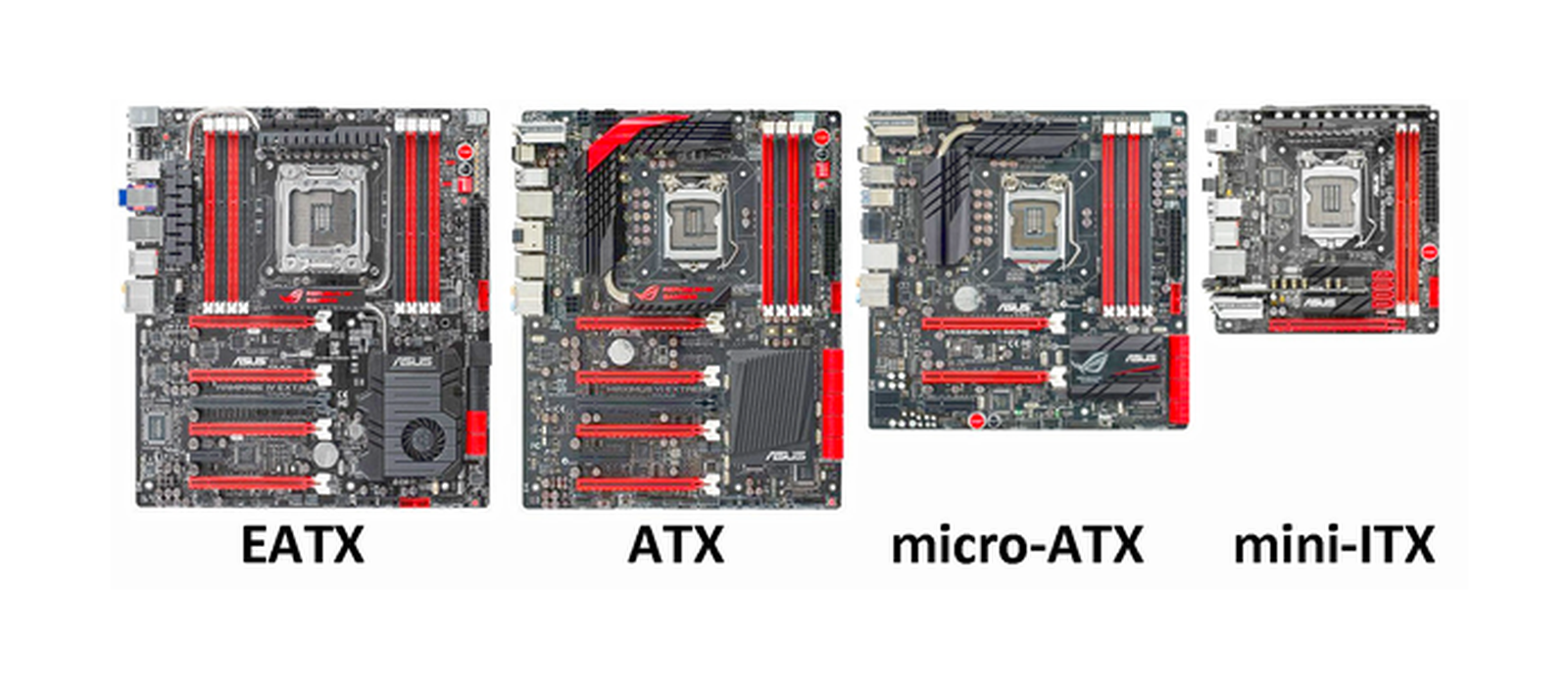
EATX, ATX, Micro ATX e Mini ITX entenda a diferença entre placasmãe
The biggest difference between micro-ATX (mATX), mini-ITX, and standard ATX motherboards are their dimensions: Standard ATX: 12.0″ x 9.6″ Micro-ATX: 9.6″ x 9.6″ Mini-ITX: 6.7″ x 6.7″ As you can see, mATX motherboards are the same width as standard ATX motherboards, but they are a couple of inches shorter.

Mini ITX vs. Micro ATX vs. ATX Motherboard Sizes Explained Voltcave
In this post, MiniTool compares their differences on four different parameters: size, RAM slots, PCIe slots, and price. On This Page : Micro ATX vs Mini ITX Which One to Choose? Final Words The motherboard is an essential part of your computer.
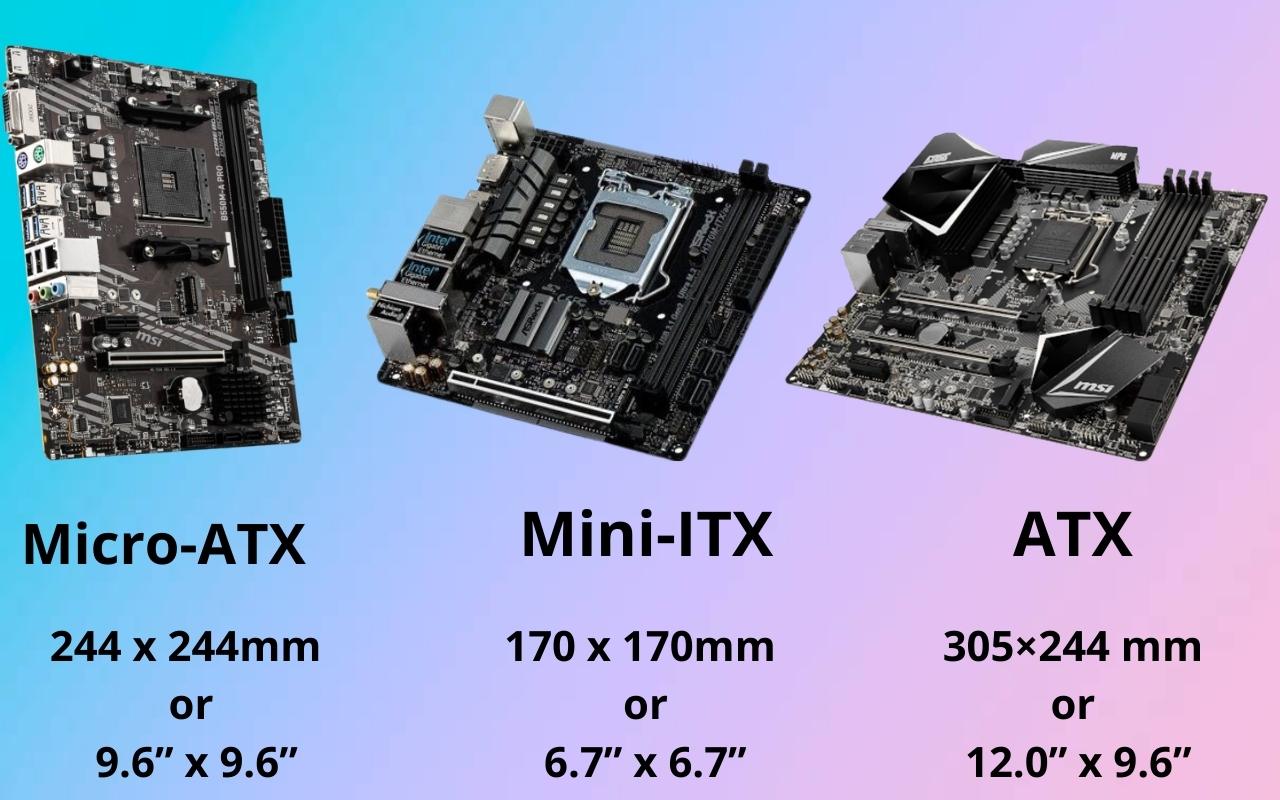
MicroATX Vs MiniITX Vs ATX Which One Should You Choose?
Size: Mini-ITX Build Is Absolutely Tiny. One of the key reasons people buy a Mini-ITX or microATX over a standard ATX motherboard is size. A Mini-ITX motherboard measures 6.7 by 6.7 inches (17 by 17 cm), while microATX motherboards are 9.6 by 9.6 inches (24.4 by 24.4 cm). If you do the math, you'll find that microATX motherboards are about 40%.
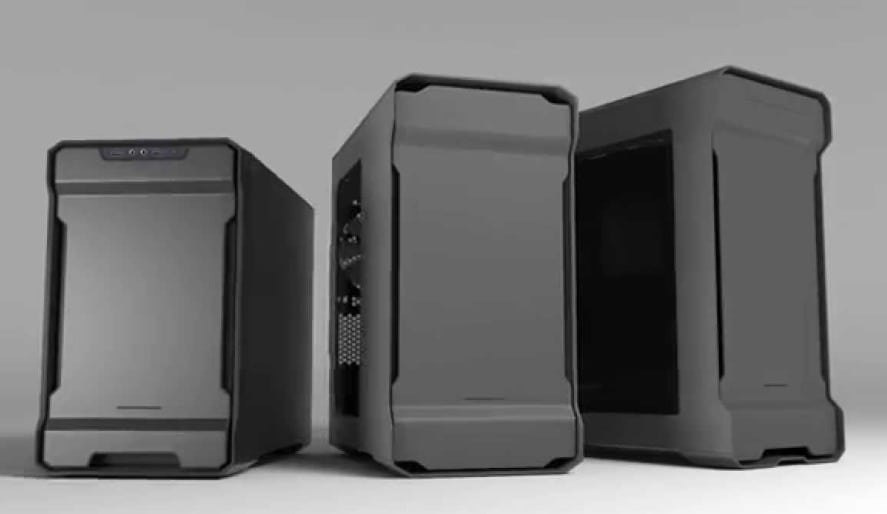
Mini ITX vs Micro ATX Computer Cases Differences and Comparisons
The differences between ITX and ATX are size, PCIe lane build, and RAM capacity. In turn, these differences determine what type of PC case you can use for your motherboard. For example, VIA Technologies first developed the ITX for use in small-configured computer systems, and ITX has less RAM than other motherboards.
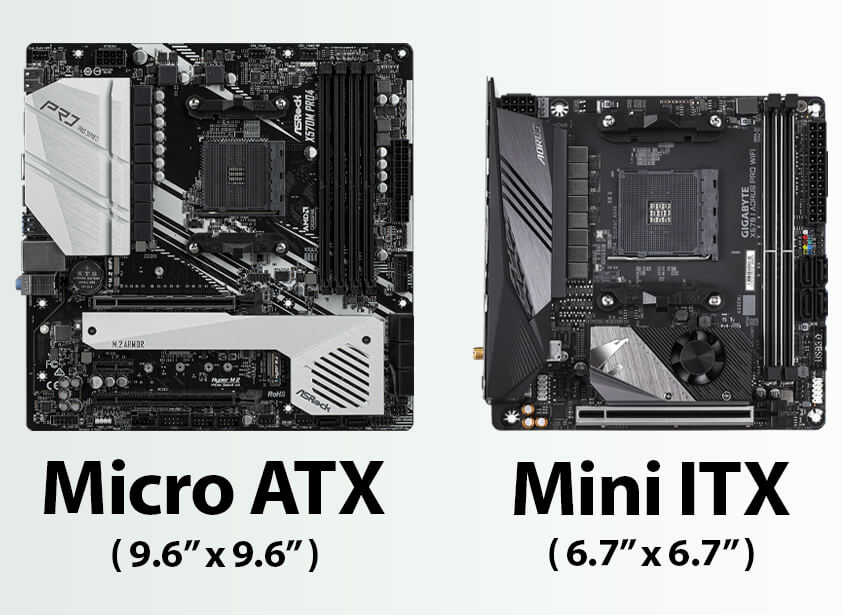
ATX vs Micro ATX vs Mini ITX Which Should I Choose?
Size and Design ATX Size and Design Micro ATX Size and Design Mini-ITX Size and Design Pricing ATX vs MicroATX vs Mini-ITX: Which Is The Best? Best Motherboard for Gaming: ATX or Micro ATX Best Motherboard for High-Powered Workstations: ATX Best Motherboard for Desktop PCs: Micro ATX Best Motherboard for Small Form-Factor PCs: Mini-ITX
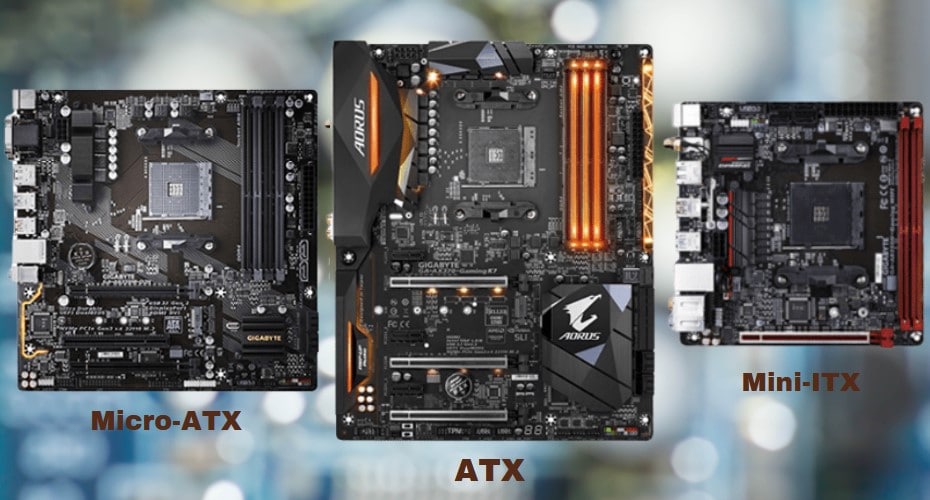
MicroATX vs MiniITX vs ATX Which Motherboard should you pick? Free PC Tech
What is the Difference Between ATX vs Micro-ATX vs ITX. In short, ATX motherboards offer more ports, slots and features, while micro-ATX motherboards have slightly less and are small in size. ITX is the smallest form factor of a computer motherboard, and it can be used in the smallest PC case and HTPCs.

ATX vs Micro ATX vs Mini ITX Which Should You Choose?
Size: Motherboard size comparison As you can see from the above measurements, ATX is the largest format of all. The Micro-ATX is approximately 244×244 mm, which makes it a little smaller. And last but not least, there comes a Mini-ITX motherboard, which is the smallest and most demanding above all.

Micro ATX Vs Mini ITX Vs ATX What’s The Difference Phenom Builts
The first thing you'll notice is the difference in size. Compared to an ATX motherboard, an ITX one is petite and minuscule, almost laughably small. mATX is square in the middle — not too big but certainly not too small either. Their size, naturally, affects many different things, the most important one being their number of ports/slots and.